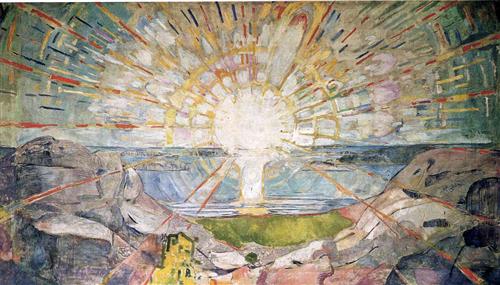I heard that Halesworth Branch of the U3A were trying to start a Music Appreciation group so this afternoon went along to a meeting designed to test the water of interest. Sadly only 4 people turned up, and one of those let after 10 minutes or so – having thought it was Musicals appreciation and preferring to be outdoors on a lovely summer afternoon. The 3 of us left listened to 4 very different pieces of music brought along by one person. They were
Beethoven’ Appassionato played by John Ogdon
Michael Brecker’s Walkiria
Out of this only Michael Brecker is in my own collection albeit not the particular track that was played and assuming I got the track name correct I can’t find an online link to it.
For me the “introduction” of the session has to be the Ketil Bjornstad’s music inspired by the paintings of Edward Munch. Although not normally a lover of choral music I very much took to the mix of cello, timpani and choral voices and bought the album! I found this interesting review of his work

